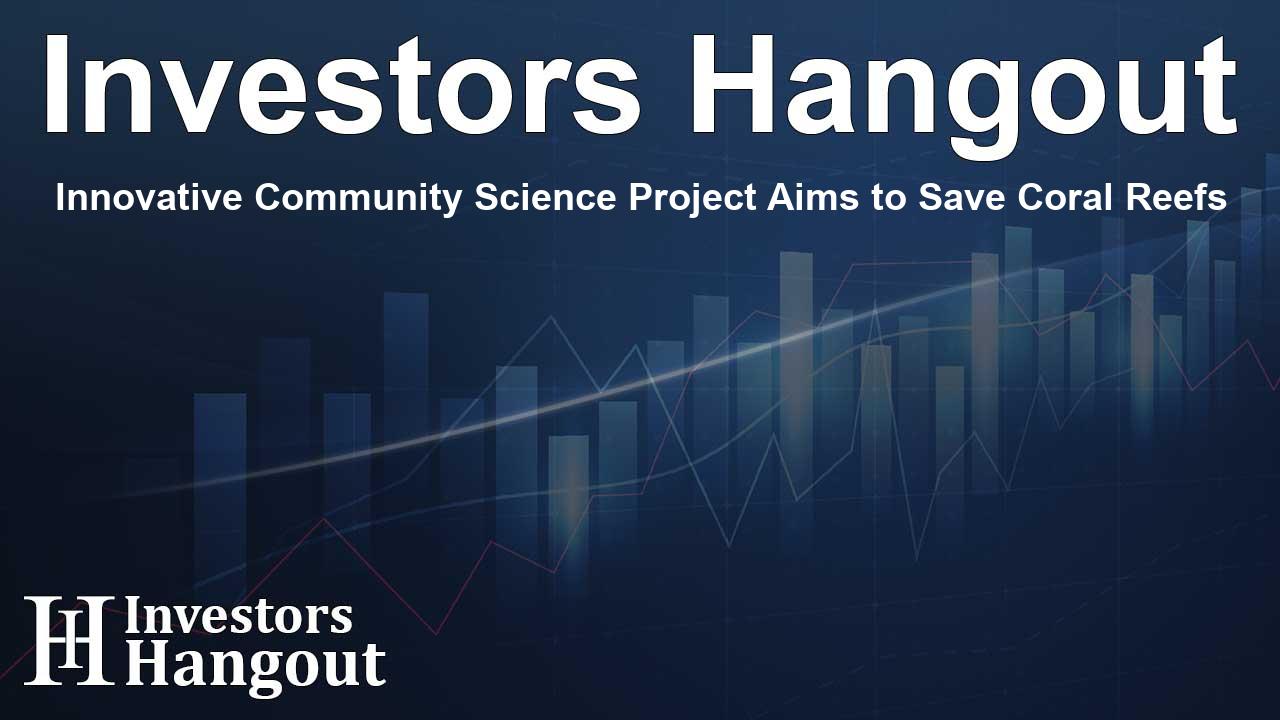Innovative Community Science Project Aims to Save Coral Reefs

Revolutionizing Coral Conservation Through Community Science
As the world's coral reefs face unprecedented threats from climate change, overfishing, and pollution, innovative solutions are critical for their survival. The alarming statistics indicate that more than half of the world's coral reefs have disappeared since the 1950s, and predictions suggest that as much as 90% could vanish by 2050. This dire situation has sparked a response from scientists and conservationists, prompting them to explore unique avenues for coral preservation. One of the most exciting initiatives underway is Project ReefLink, which taps into the valuable resources of home and institutional aquariums.
The Power of Microbes in Coral Health
Project ReefLink is a nationwide community science project that invites aquarium enthusiasts to contribute to coral research. By sampling microbes from aquarium corals, researchers aim to gain insight into how these microorganisms can help corals withstand disease and environmental stress. This project builds on the collaborative efforts of Seed Health and The Two Frontiers Project, alongside support from CitSci and Coral Morphologic.
Exploring the Coral Microbiome
The coral microbiome—a complex network of microbes that live in and around coral organisms—plays a vital role in maintaining coral health. By mapping this microbial community, scientists hope to identify beneficial organisms that protect corals from pathogens and environmental changes. Understanding these dynamics can lead to innovative methods for predicting coral diseases and developing microbial interventions that enhance coral resilience.
Supporting Coral Research through Aquariums
Aquariums provide controlled environments that allow researchers to monitor coral health under varying conditions, something that is often challenging in natural habitats. Dr. Braden Tierney, Co-Founder and Executive Director of The Two Frontiers Project, emphasized the significance of this research setting. “Aquariums represent an untapped frontier for coral research,” he said, highlighting their potential to inform new conservation strategies, including probiotics and other nature-based tools.
Establishing a Living Database
Collected samples from participating aquariums will undergo extensive sequencing and analysis. The findings will contribute to a unique microbial culture bank designed specifically for aquarium corals. This open-source database promises to offer valuable insights into microbial candidates that could enable reef systems to withstand threats such as bleaching and climate-induced disease outbreaks. Such developments are critical as researchers strive to combat the decline of coral ecosystems.
Collaboration for a Sustainable Future
Seed Health plays a pivotal role in this groundbreaking research initiative. Their environmental research division, SeedLabs, works alongside The Two Frontiers Project to explore microbial life amid diverse ecological settings, including volcanic CO? seeps, which serve as natural laboratories to study climate impacts on marine life. By collaborating with global experts, Seed is enhancing our understanding of the coral microbiome, particularly in environments that mirror future ocean conditions.
Engaging the Community in Science
Seed Health has a history of launching successful community science initiatives. Their previous projects, such as #GiveAShit for Science, gathered significant public involvement to advance understanding of microbial health. By extending this concept to the marine environment through Project ReefLink, Seed is reaffirming the idea that community engagement can drive impactful scientific breakthroughs.
Looking Ahead with Hope
The urgency of the climate crisis requires innovative solutions from every corner of science. As Seed Health’s Director of Sustainability and Impact, Alison Mehlsak, stated, “Some of the most transformative innovations may be hiding in places we’d never expect.” This sentiment underlines the potential for community-driven research to influence the future of coral conservation.
Project ReefLink invites individuals to play a role in one of today's most pressing environmental challenges by participating in scientific research that can ultimately benefit coral ecosystems worldwide.
Frequently Asked Questions
What is Project ReefLink?
Project ReefLink is a community science initiative that encourages aquarium owners to collect and share data about the microbes associated with their corals to enhance understanding of coral health.
Why are corals important?
Coral reefs support over 25% of all marine life and provide essential food, income, and coastal protection for millions of people globally.
How can aquariums contribute to coral research?
Aquariums offer controlled environments for researchers to study the health and microbiome of corals, providing insights that are hard to obtain in natural settings.
What role do microbes play in coral health?
Microbes in the coral microbiome can protect corals from pathogens and help them survive environmental stresses, contributing to overall coral resilience.
How can individuals get involved in the project?
Aquarium owners can participate by sampling microbes from their corals and submitting data to Project ReefLink to aid in coral health research.
About The Author
Contact Evelyn Baker privately here. Or send an email with ATTN: Evelyn Baker as the subject to contact@investorshangout.com.
About Investors Hangout
Investors Hangout is a leading online stock forum for financial discussion and learning, offering a wide range of free tools and resources. It draws in traders of all levels, who exchange market knowledge, investigate trading tactics, and keep an eye on industry developments in real time. Featuring financial articles, stock message boards, quotes, charts, company profiles, and live news updates. Through cooperative learning and a wealth of informational resources, it helps users from novices creating their first portfolios to experts honing their techniques. Join Investors Hangout today: https://investorshangout.com/
The content of this article is based on factual, publicly available information and does not represent legal, financial, or investment advice. Investors Hangout does not offer financial advice, and the author is not a licensed financial advisor. Consult a qualified advisor before making any financial or investment decisions based on this article. This article should not be considered advice to purchase, sell, or hold any securities or other investments. If any of the material provided here is inaccurate, please contact us for corrections.
